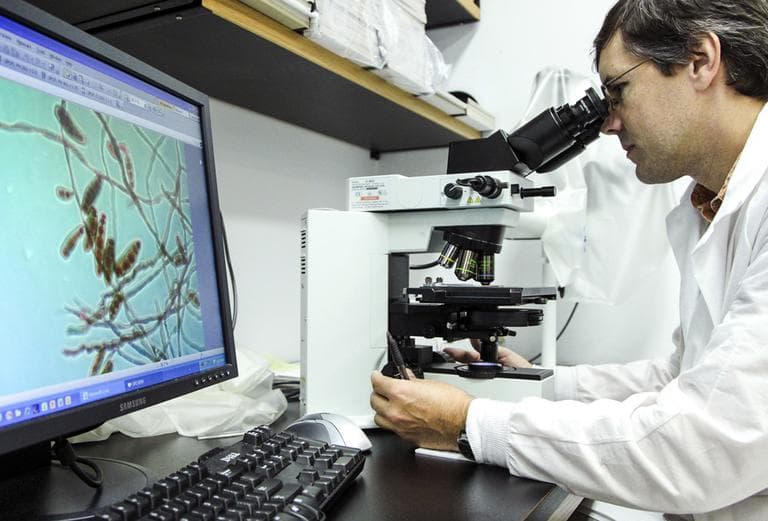Advertisement
Fungal Meningitis Outbreak Is Uncharted Territory For Doctors

So far, 24 people have died and 328 have been sickened by the outbreak of fungal meningitis that originated from three lots of tainted steroid produced by the New England Compounding Center in Framingham, Mass.
"What's crucial to remember about this outbreak of fungal meningitis is that the pathogen is not something we normally see infecting humans," Dr. Lakshmi Halasyamani, chief medical officer at St. Joseph Mercy Hospital in Ann Arbor, Mich., told Here & Now.
As a result, some of the symptoms being reported in the outbreak - such as seizures - are unusual for fungal meningitis, Halasyamani said.
While federal and state investigations of the contamination continue, lawsuits against the New England Compounding center have already been filed in several states.
The compounding center voluntarily stopped its operations after it was linked to the outbreak. Since then, the state Board of Registration in Pharmacy has voted to permanently revoke its license to operate.
Read the latest coverage by WBUR health care reporter Martha Bebinger:
Guests:
- Dr. Lakshmi Halasyamani, chief medical officer at St. Joseph Mercy Hospital in Ann Arbor, Mich.
- Martha Bebinger, health care reporter for WBUR in Boston.
This segment aired on October 26, 2012.